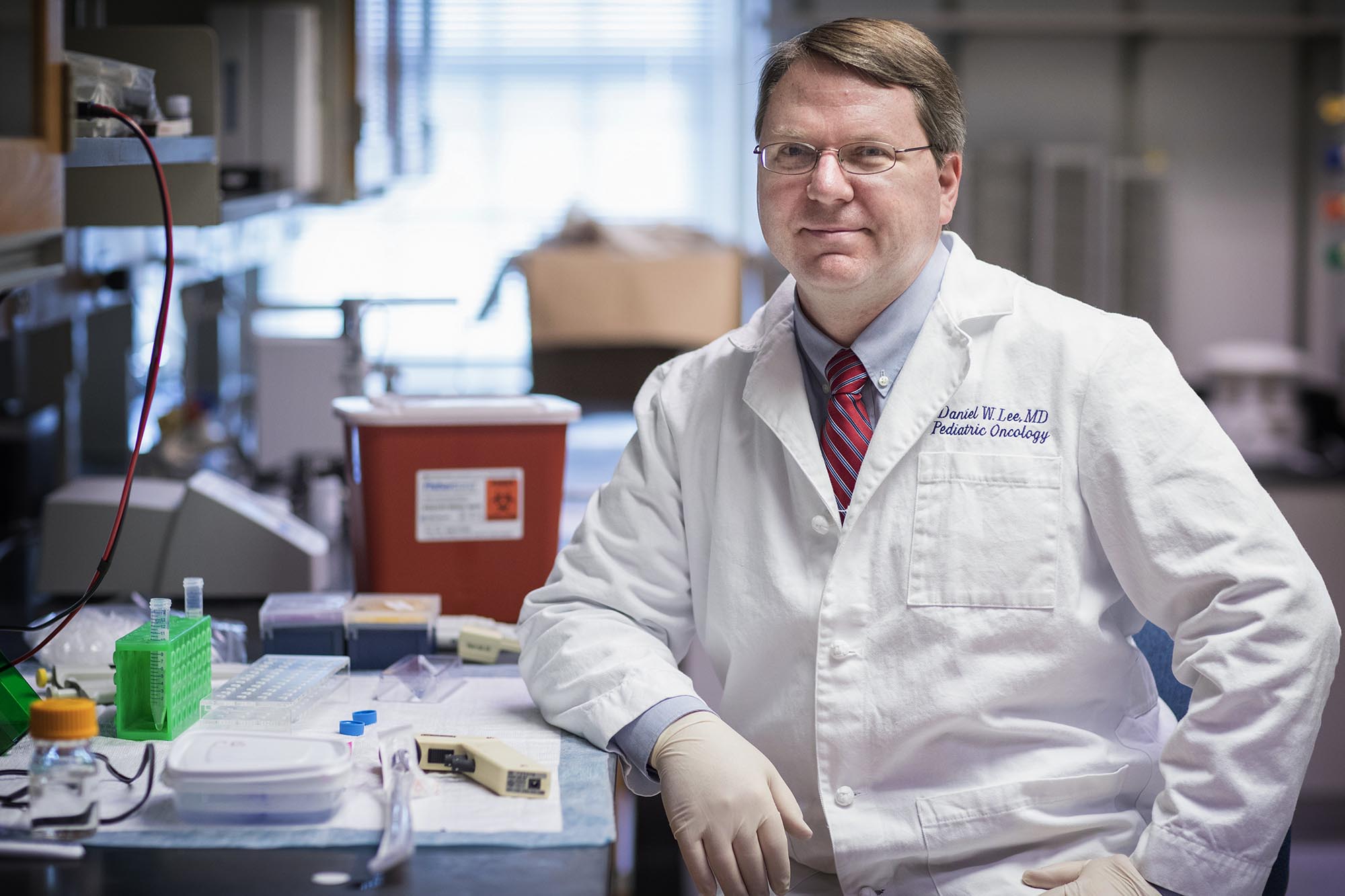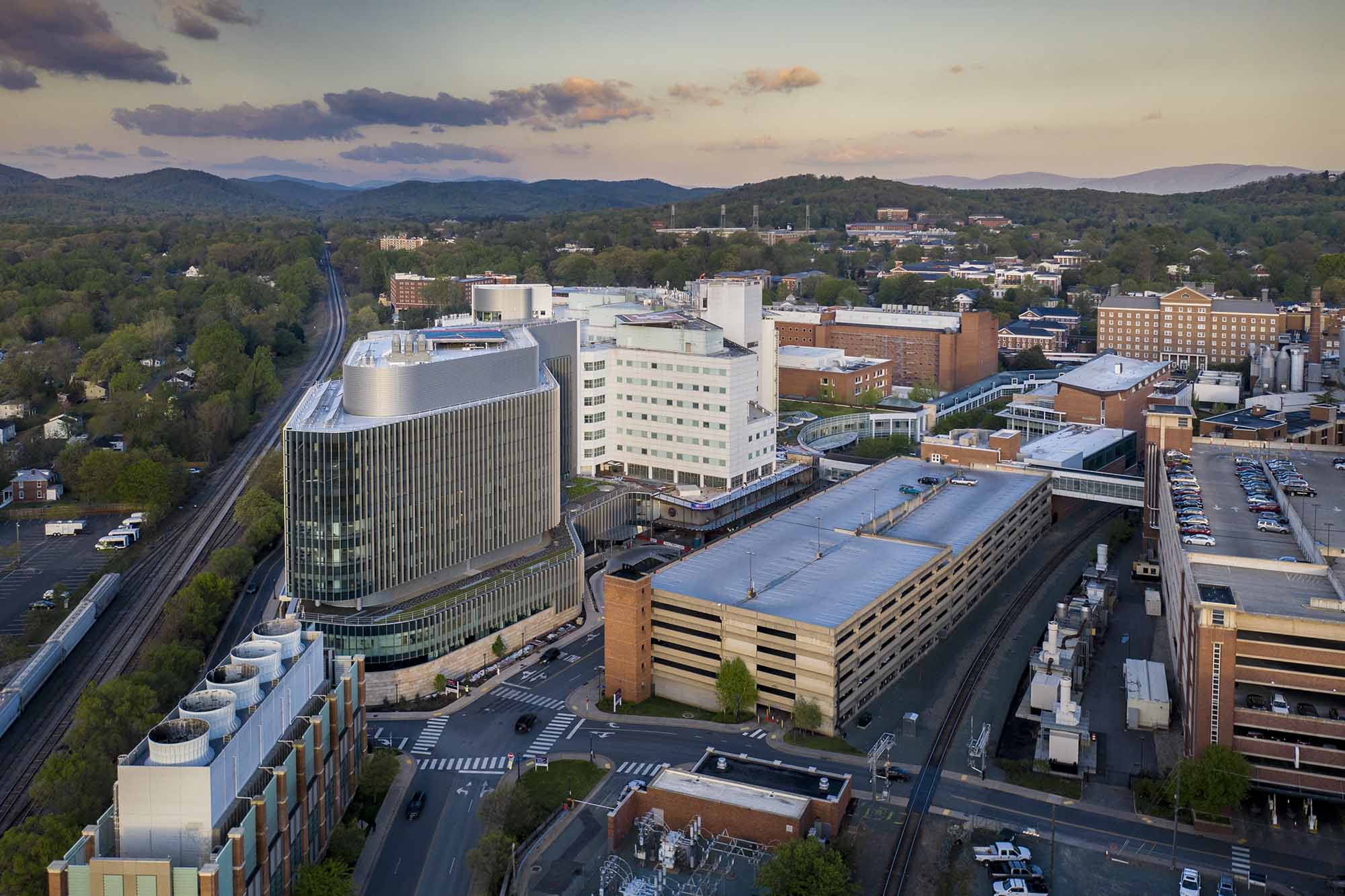Children and young adults who receive CAR T-cell therapy for the most common childhood cancer, acute lymphoblastic leukemia, suffer remarkably fewer relapses and are far more likely to survive when the treatment is paired with a subsequent stem cell transplant, a new study finds.
The research, with an average follow up of nearly five years, suggests that stem cell transplants offer long-term benefits for young patients who receive the cutting-edge immunotherapy. CAR T-cell therapy results in complete remission in 60% to 100% of patients initially, but the relapse rate is high. However, among those who received a stem cell transplant after CARs, the relapse rate was less than 10% two years later.

Dr. Daniel “Trey” Lee, a pediatric oncologist and director of Pediatric Stem Cell Transplant and Immunotherapy at UVA Children’s and the UVA Cancer Center. (Photo by Dan Addison, University Communications)
“More than 50% of kids in other studies with a different CAR [suffer] relapse, with the majority of them losing the target the CAR goes after,” said researcher Dr. Daniel “Trey” Lee, a pediatric oncologist and director of Pediatric Stem Cell Transplant and Immunotherapy at UVA Children’s and the UVA Cancer Center. “Most of these kids have a single shot at this life-saving and paradigm-changing therapy called CAR T-cells. We should do all we can to maximize the chance for a cure, and right now that means a transplant after CAR therapy for most.”
About CAR T-Cell Therapy
Chimeric antigen receptor (CAR) T-cell therapy takes a person’s own immune cells and genetically modifies them to make them more effective cancer killers.
The approach has shown high remission rates – up to 100% – 28 days after it is given to children and young adults with B-cell acute lymphoblastic leukemia. But a significant number relapse, the limited data available suggests. One study found that more than 40% had relapsed 13.1 months later.
To determine if stem cell transplants could help, the new study looked at outcomes in 50 children and young adults, ages 4 to 30. The median age was 13.5 years.
Among the 21 who received an allogenic stem cell transplant – meaning stem cells transplanted from others – after CARs, only two, or 9.5%, had relapsed 24 months later. In comparison, all of those who did not receive a stem cell transplant had relapsed.










